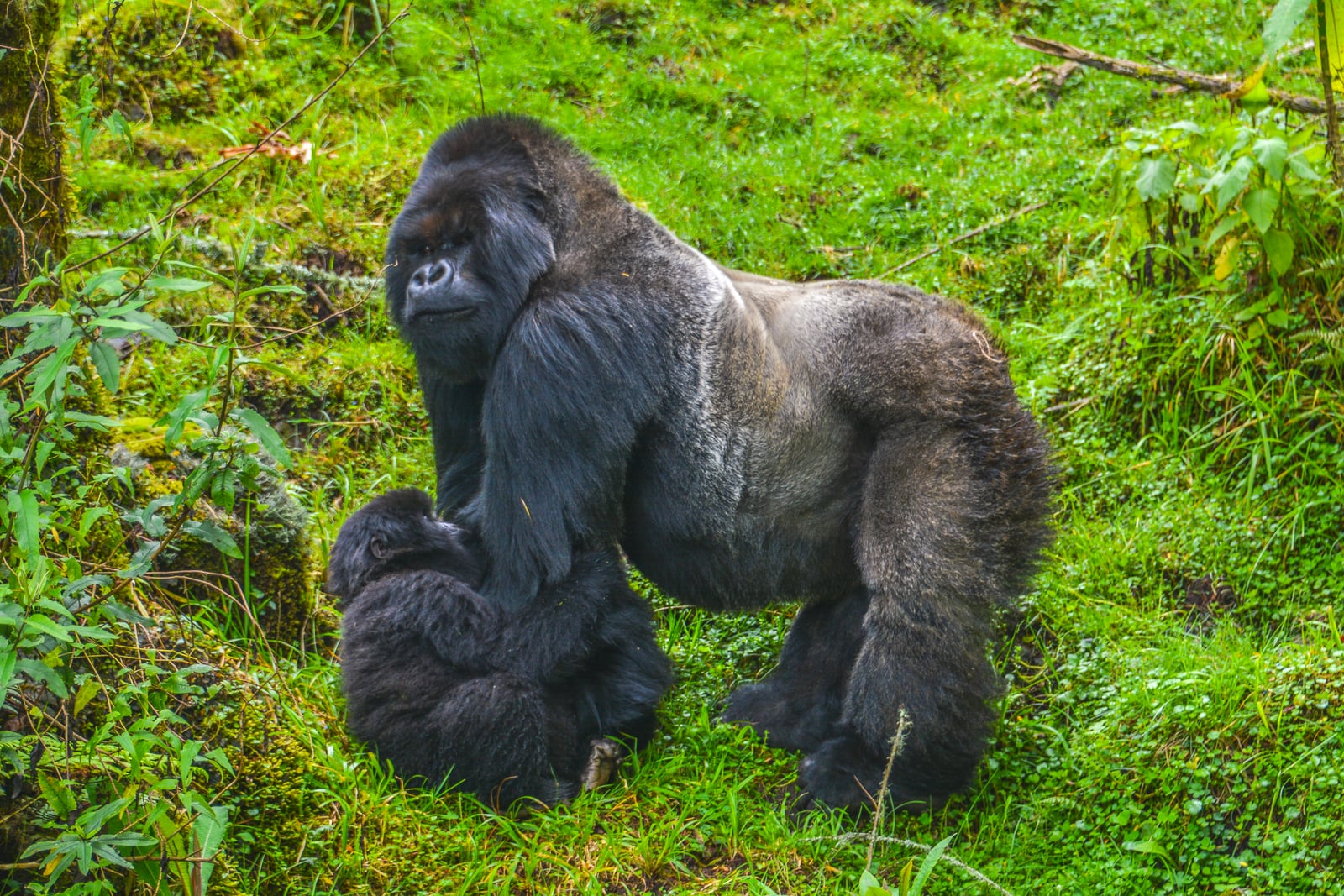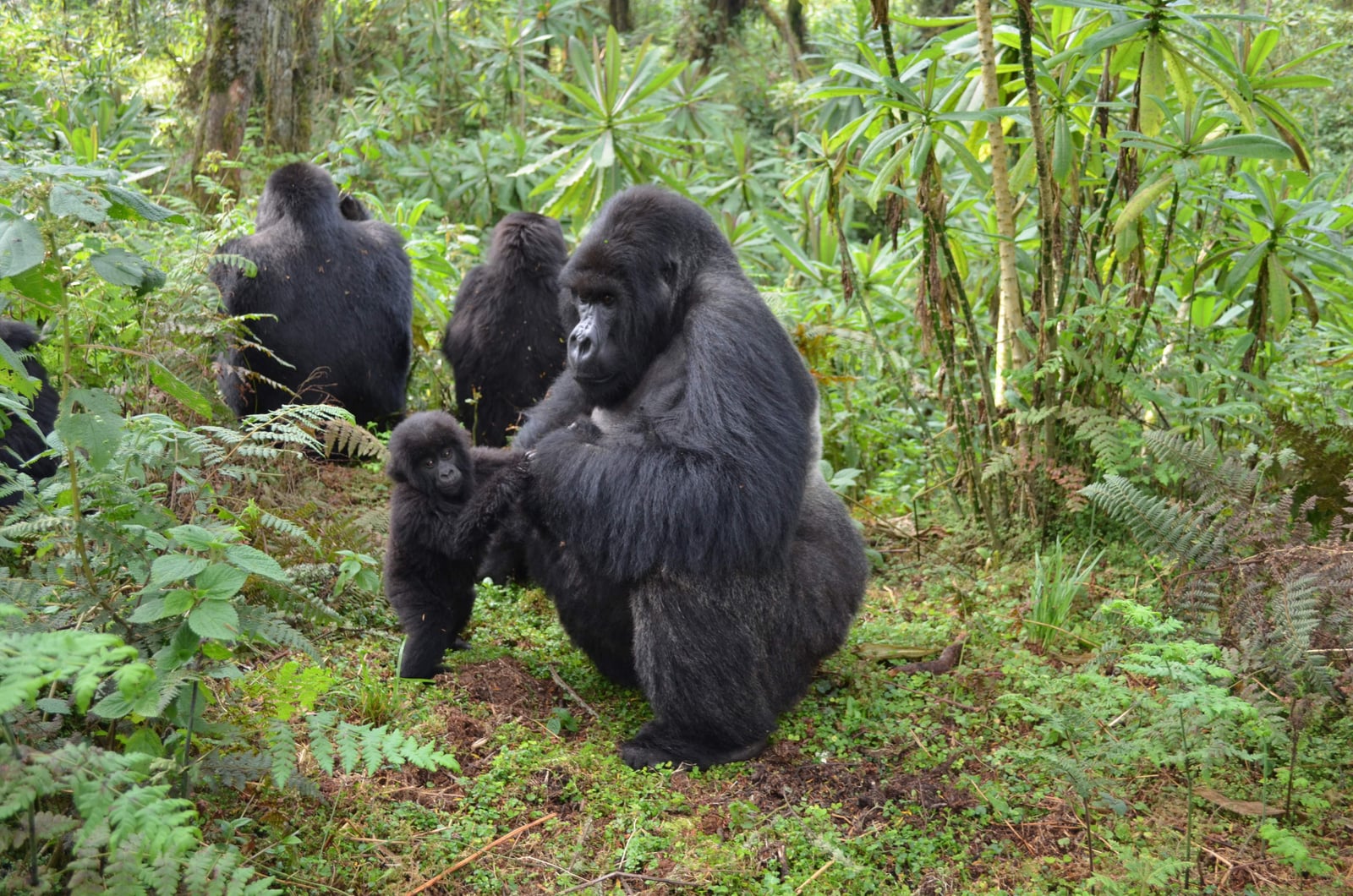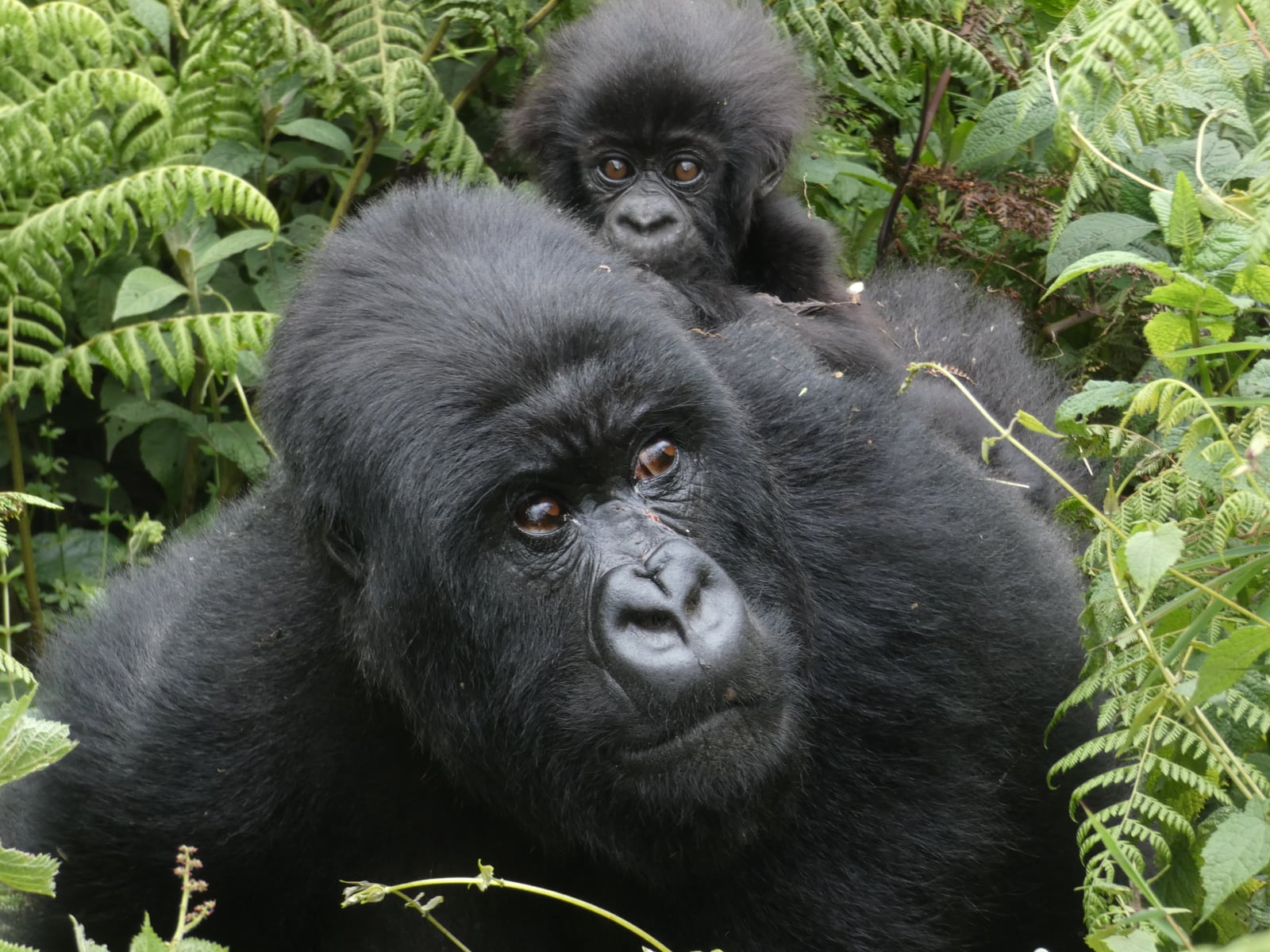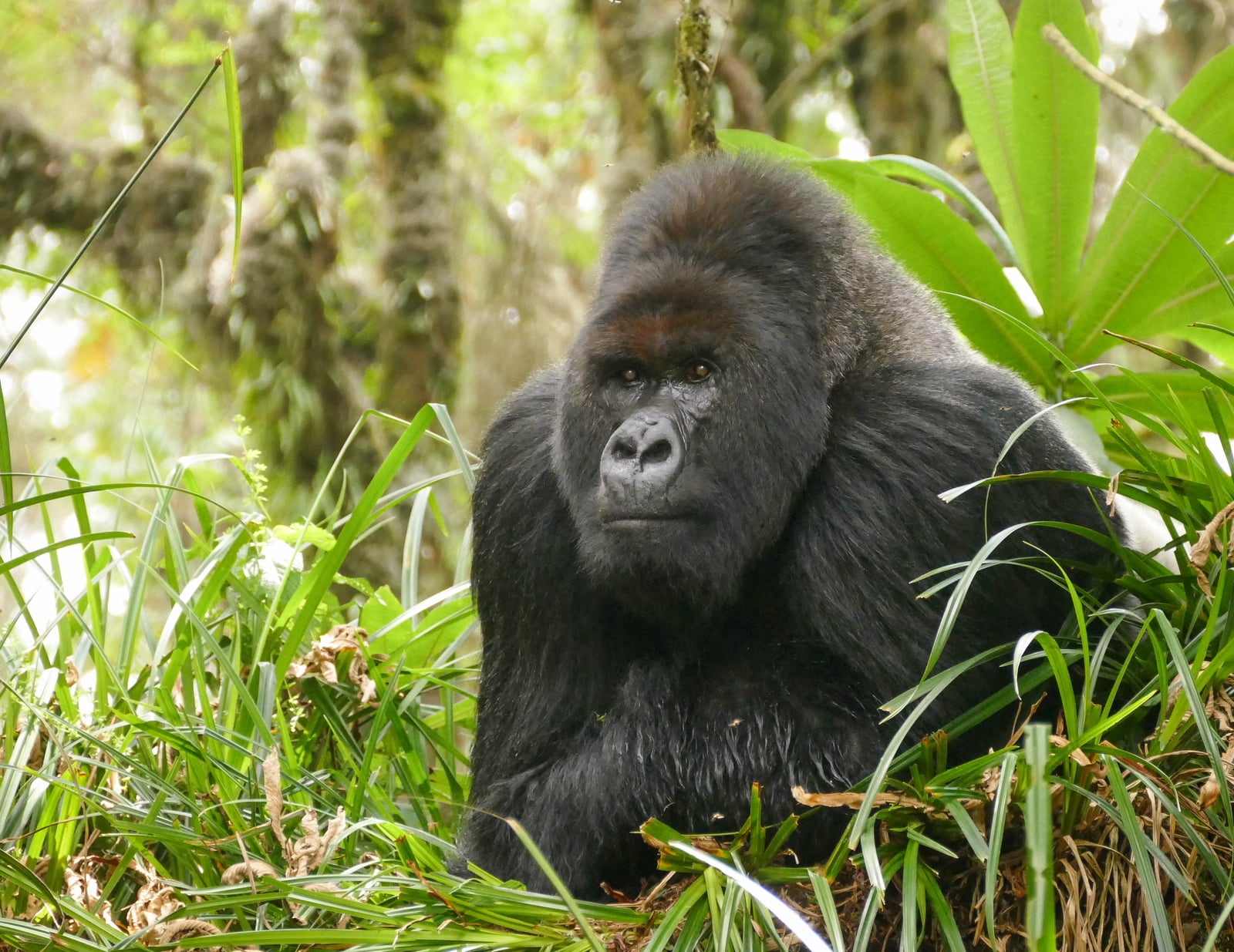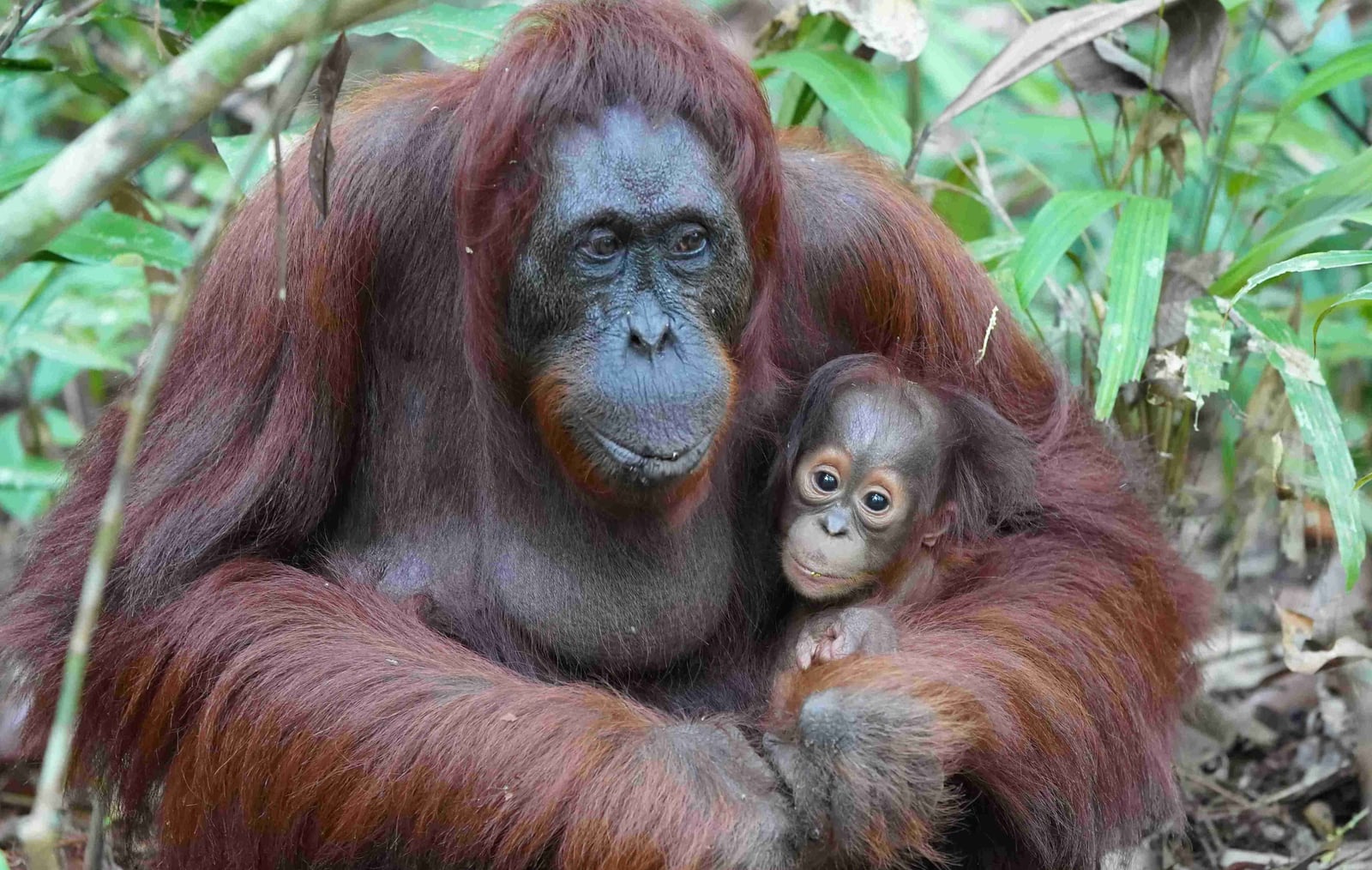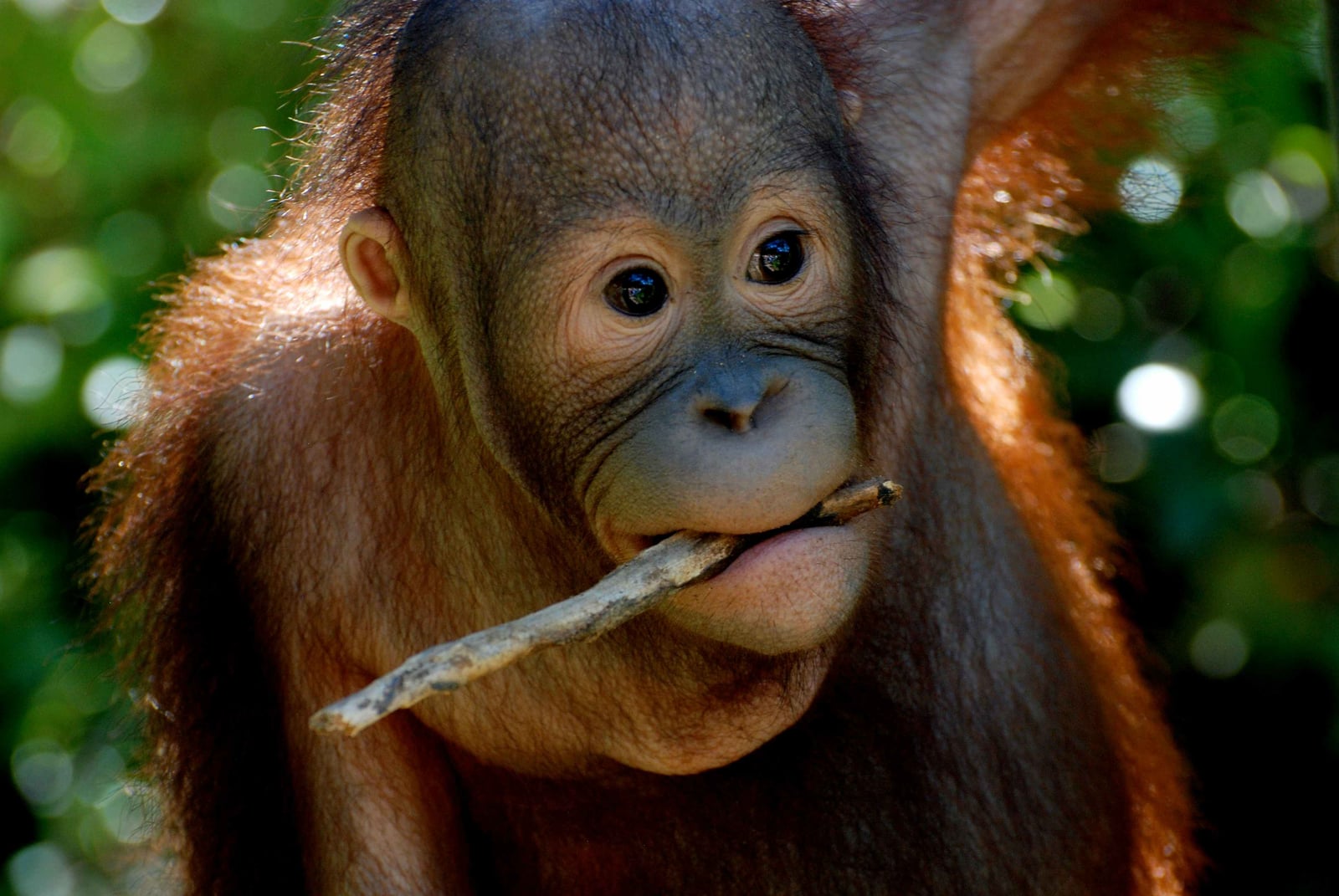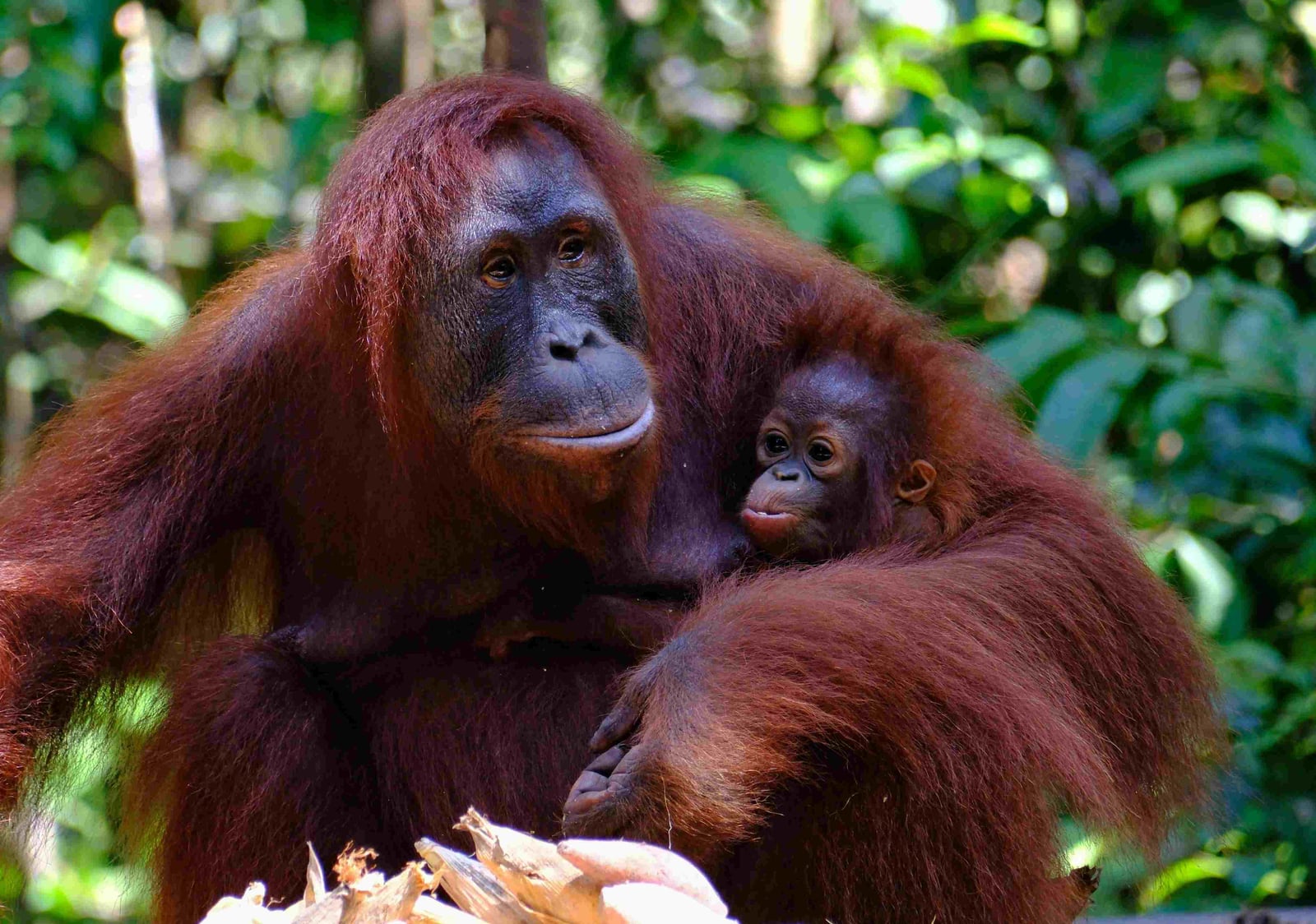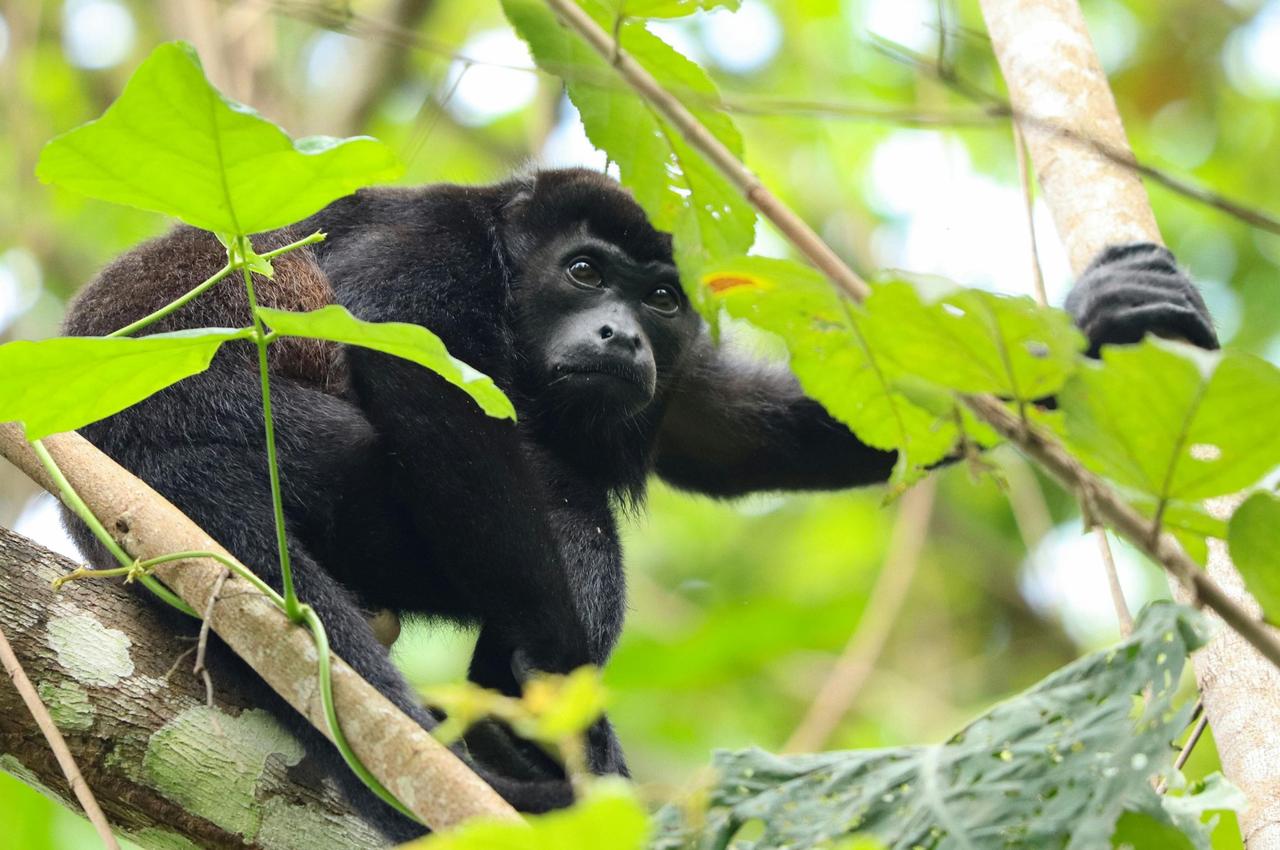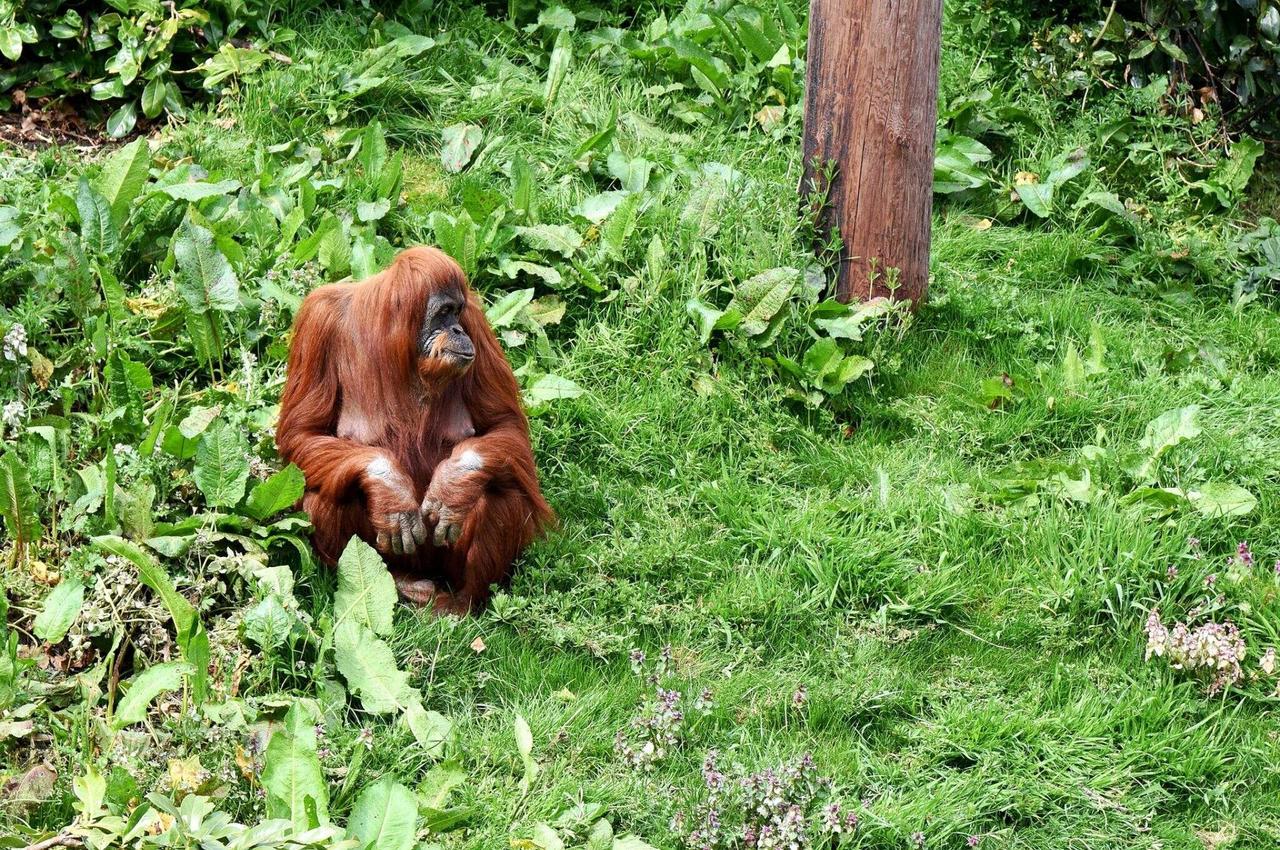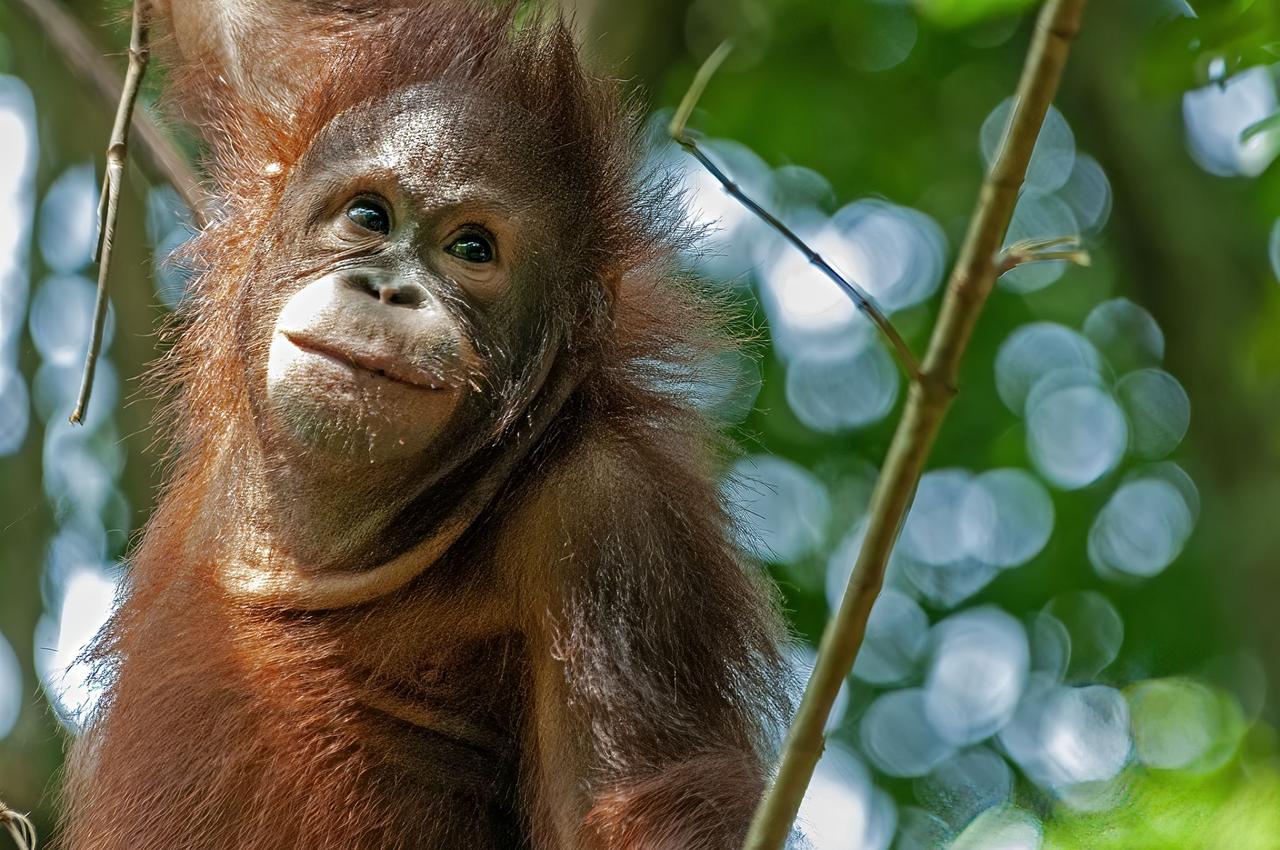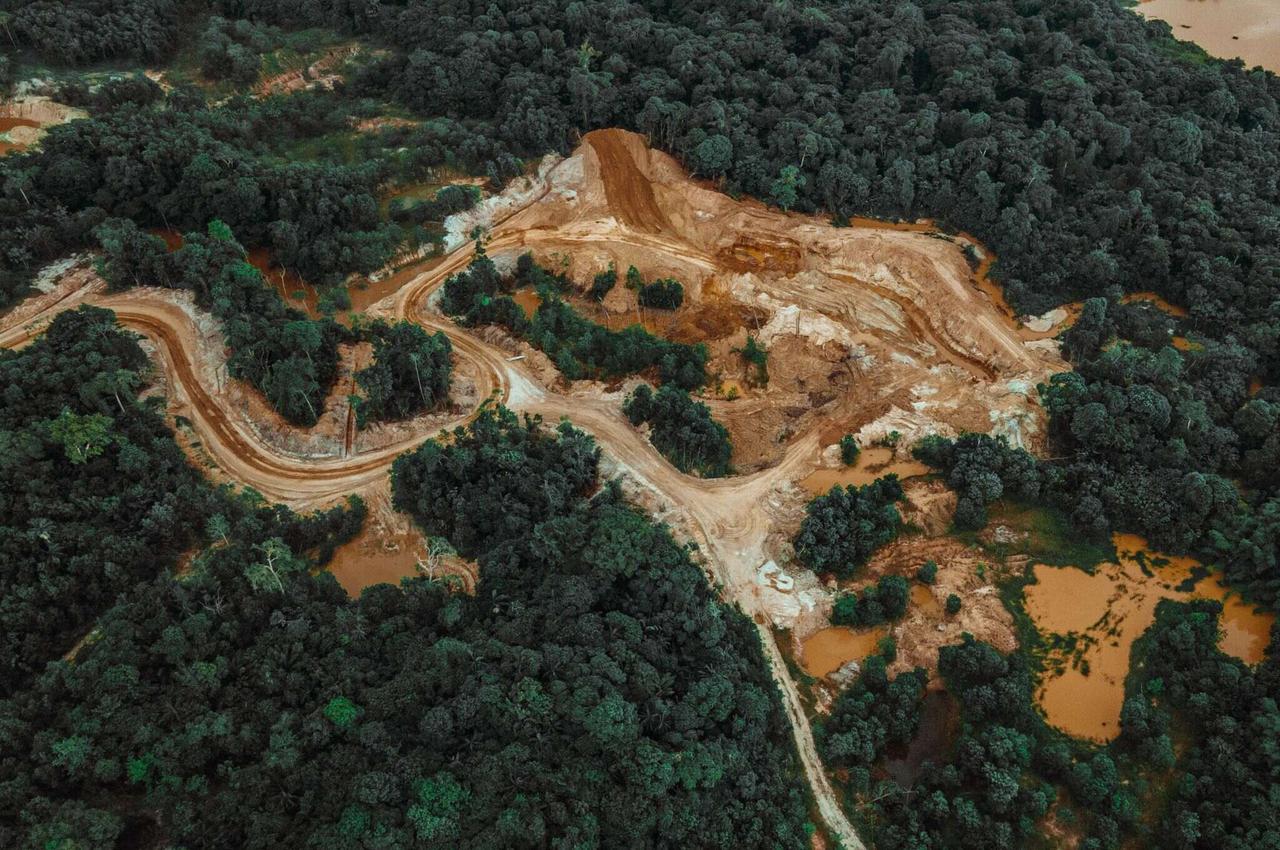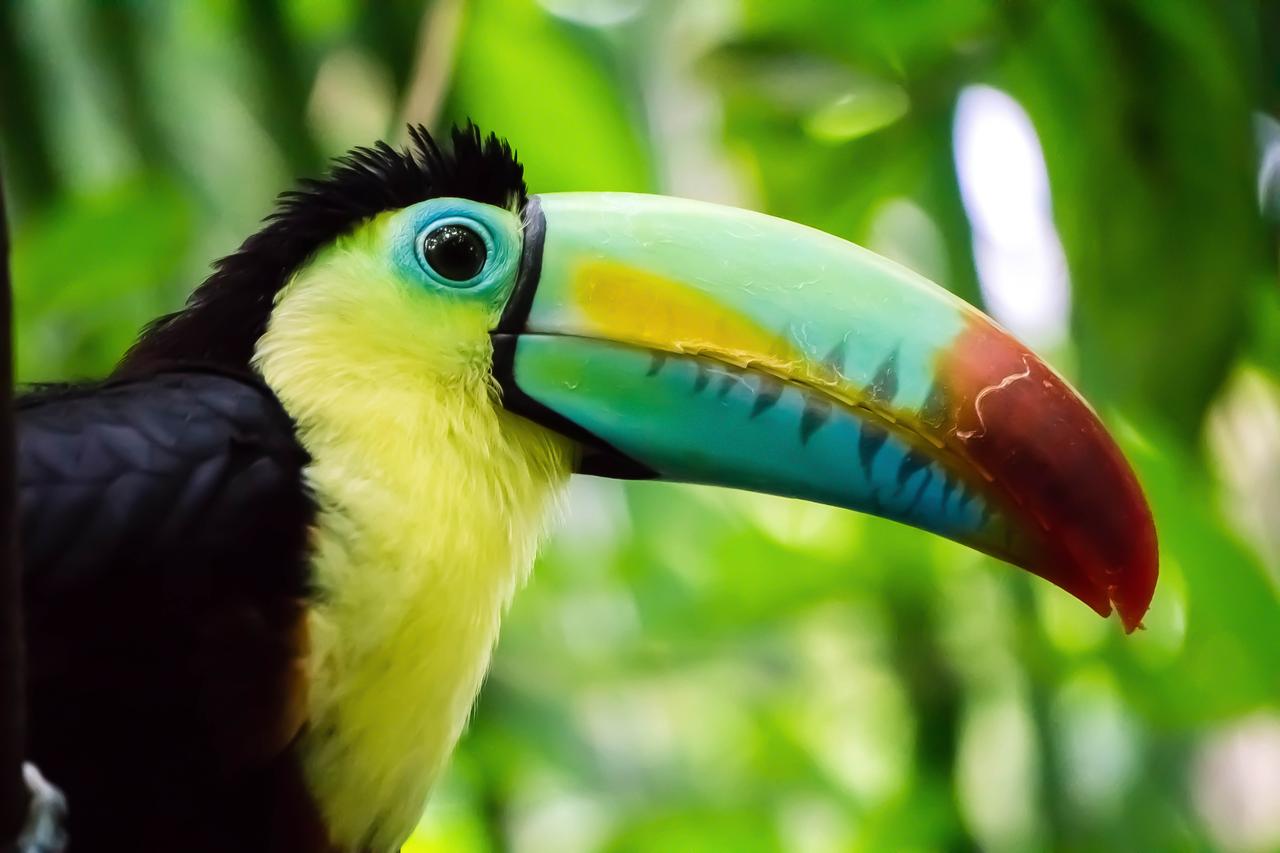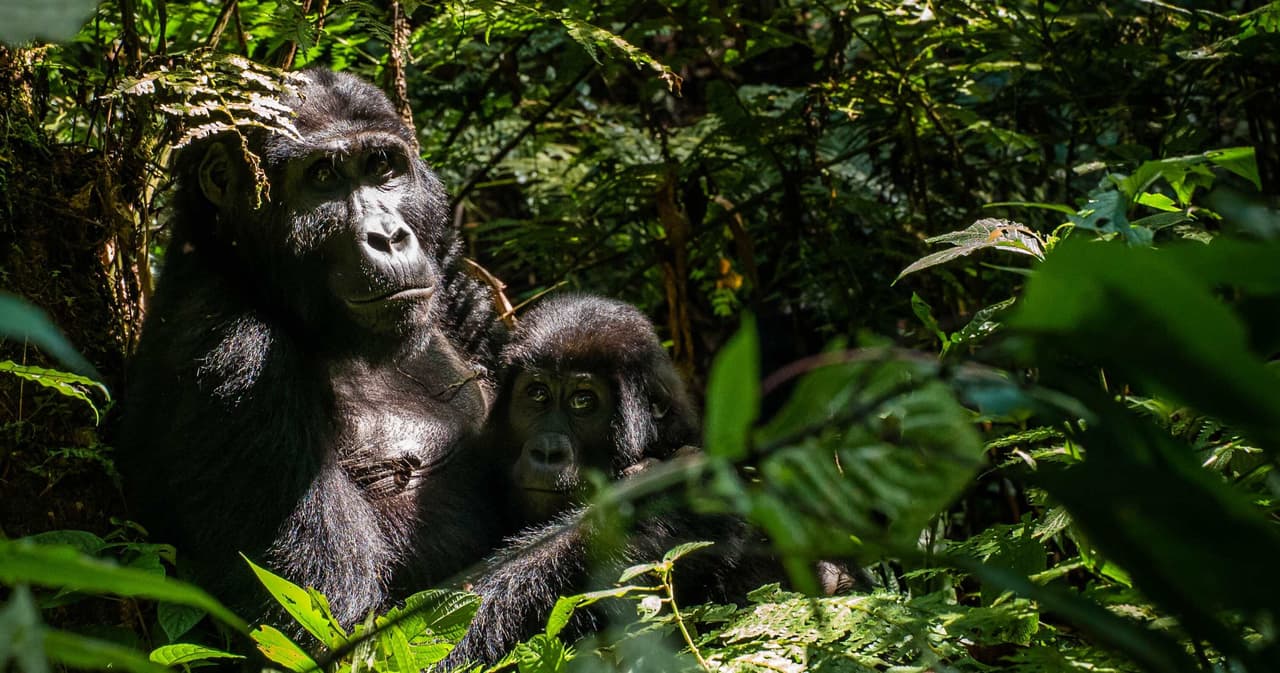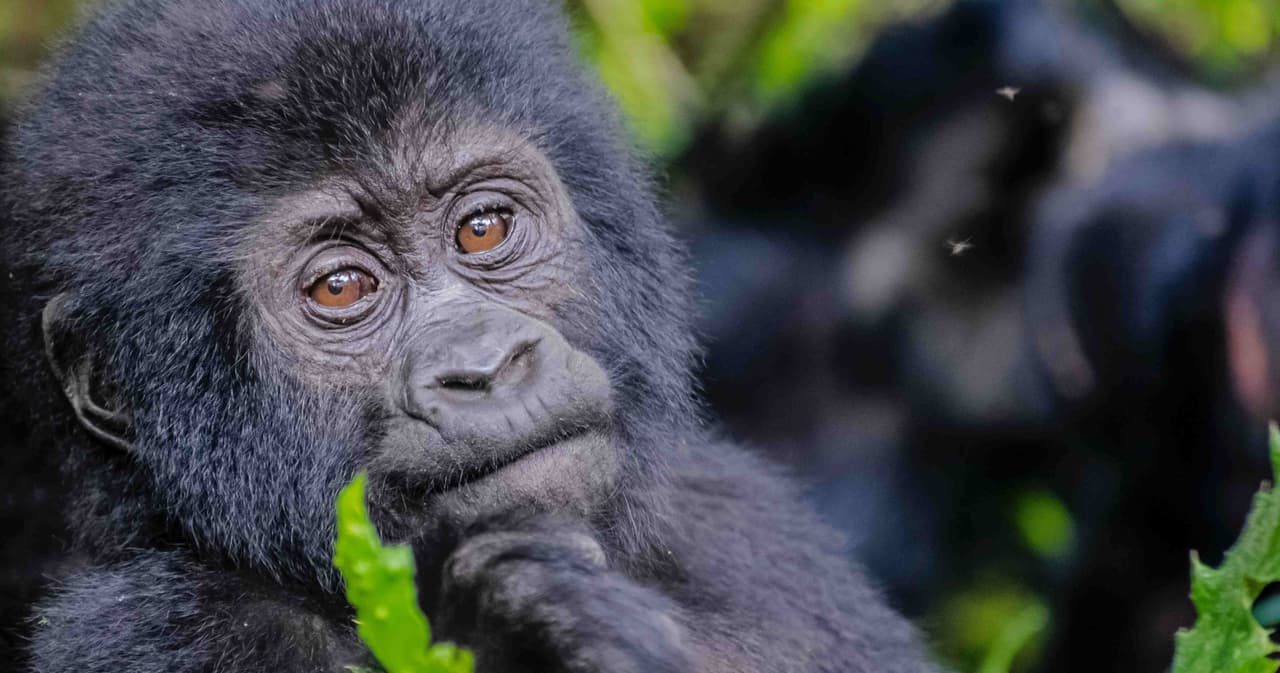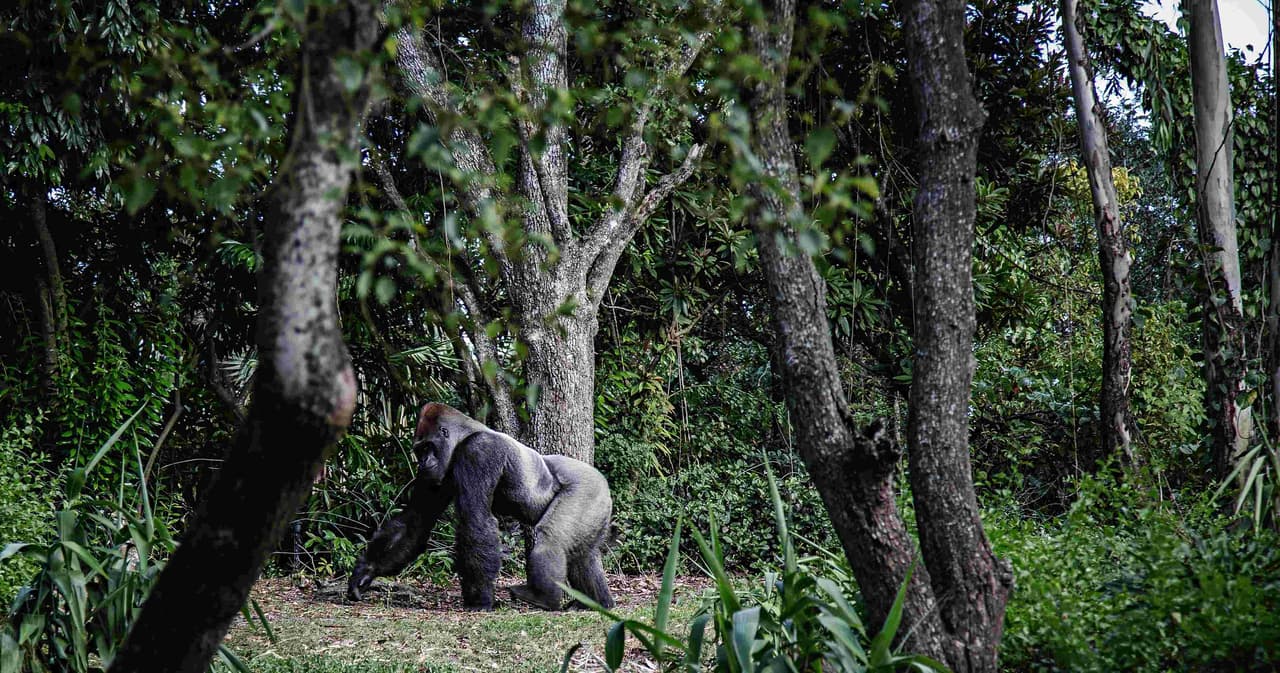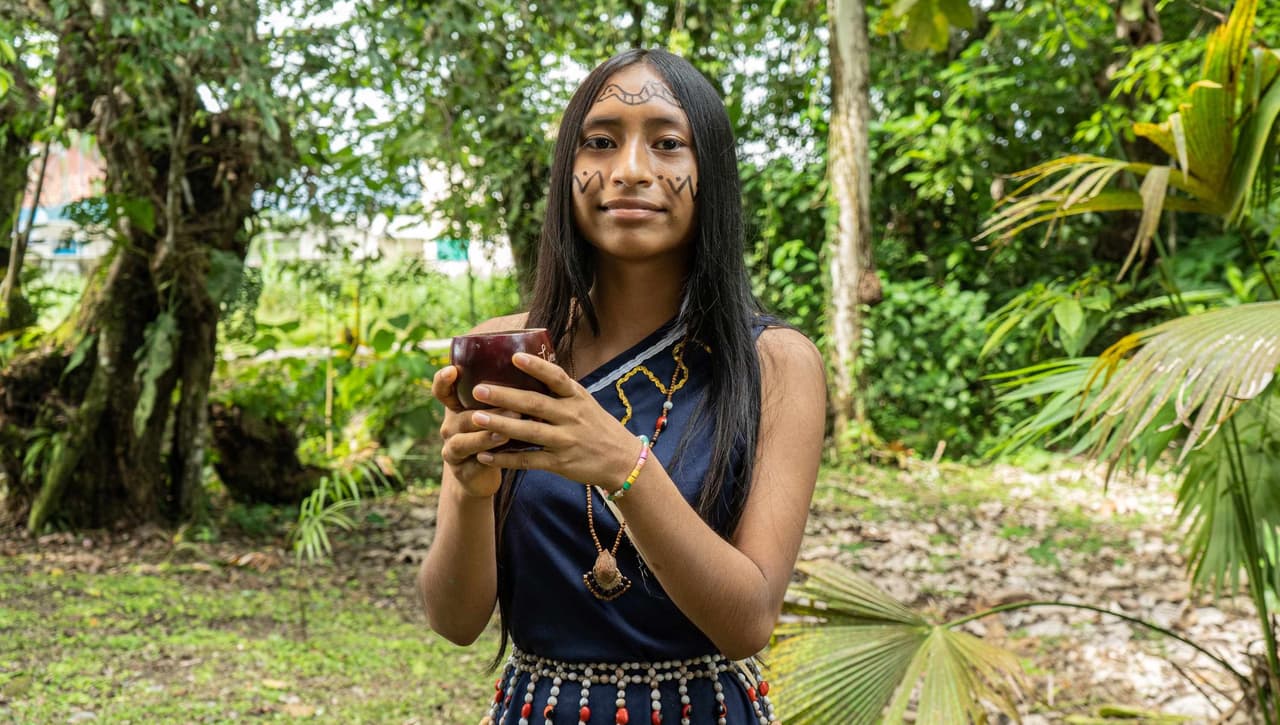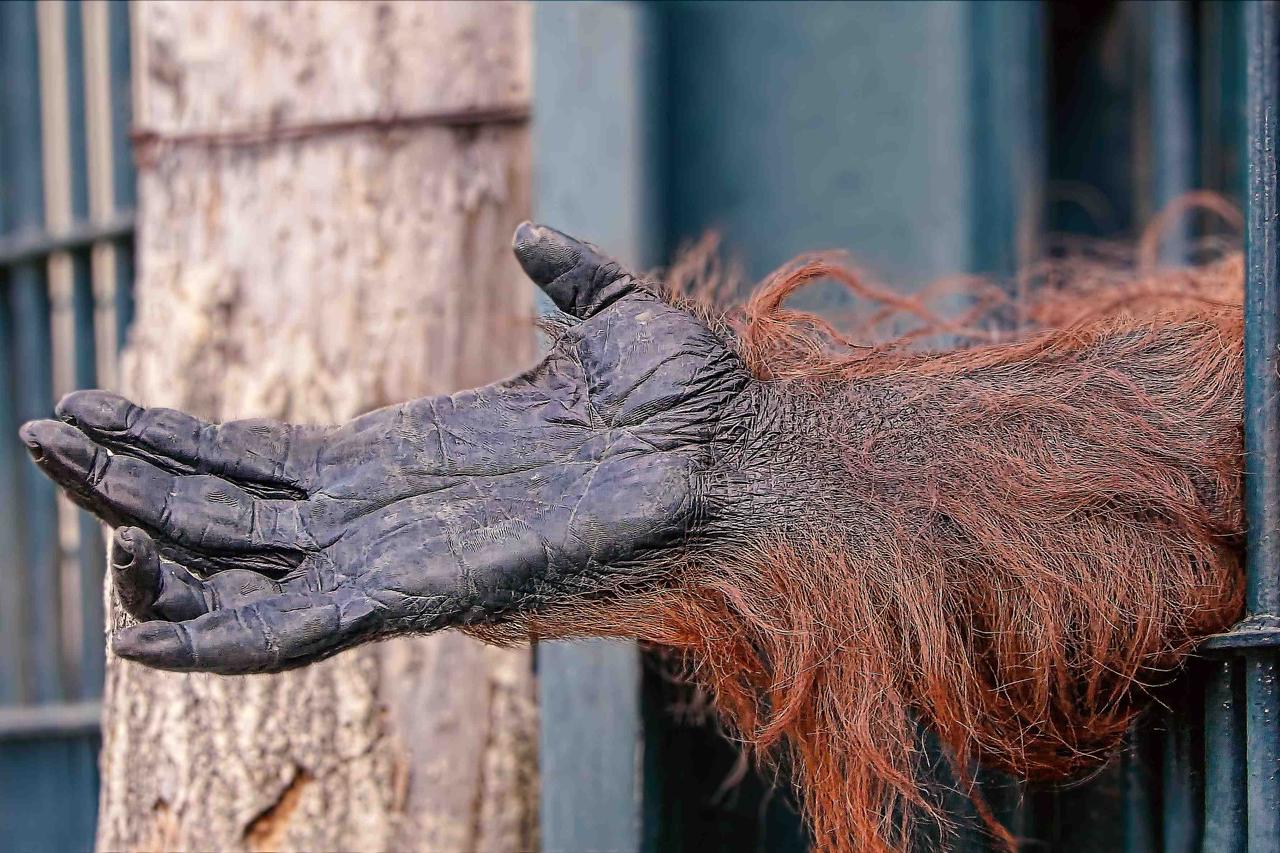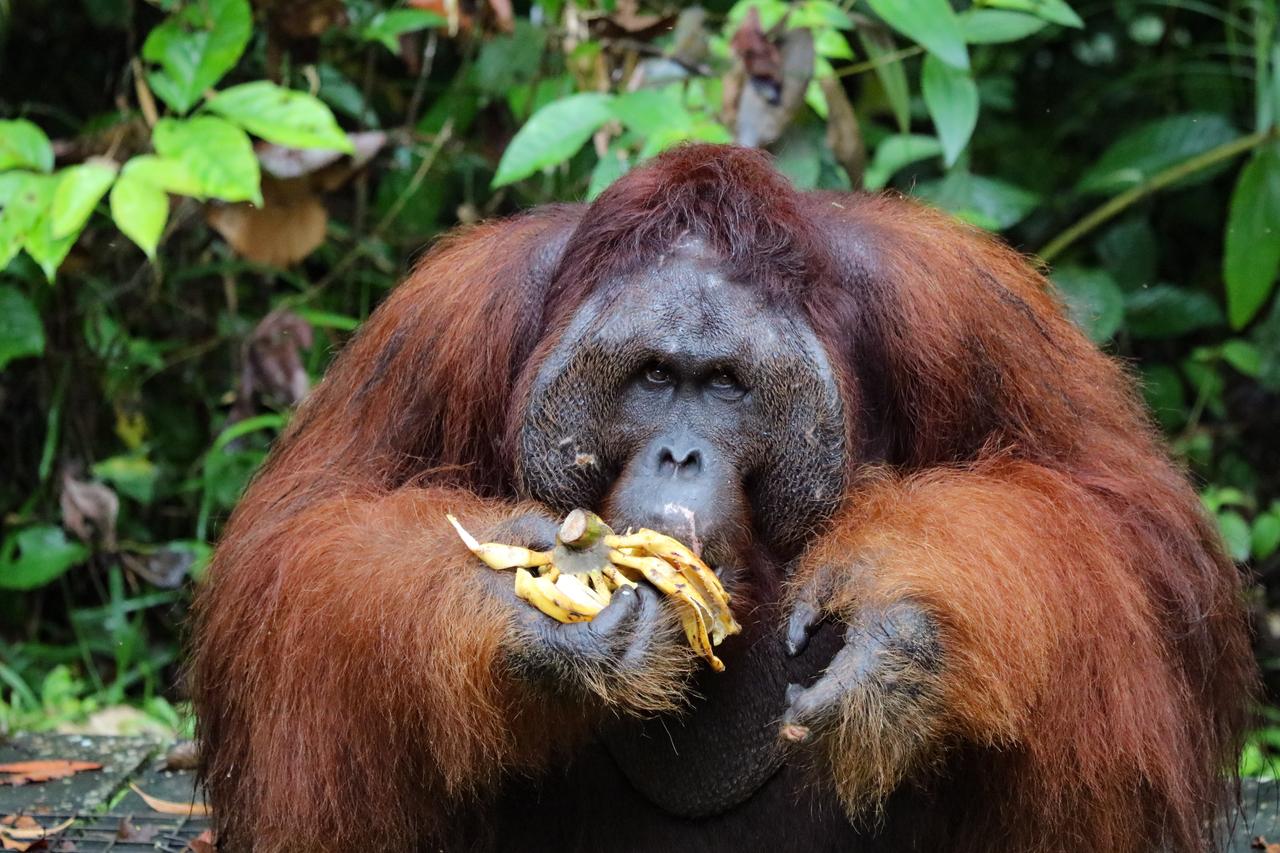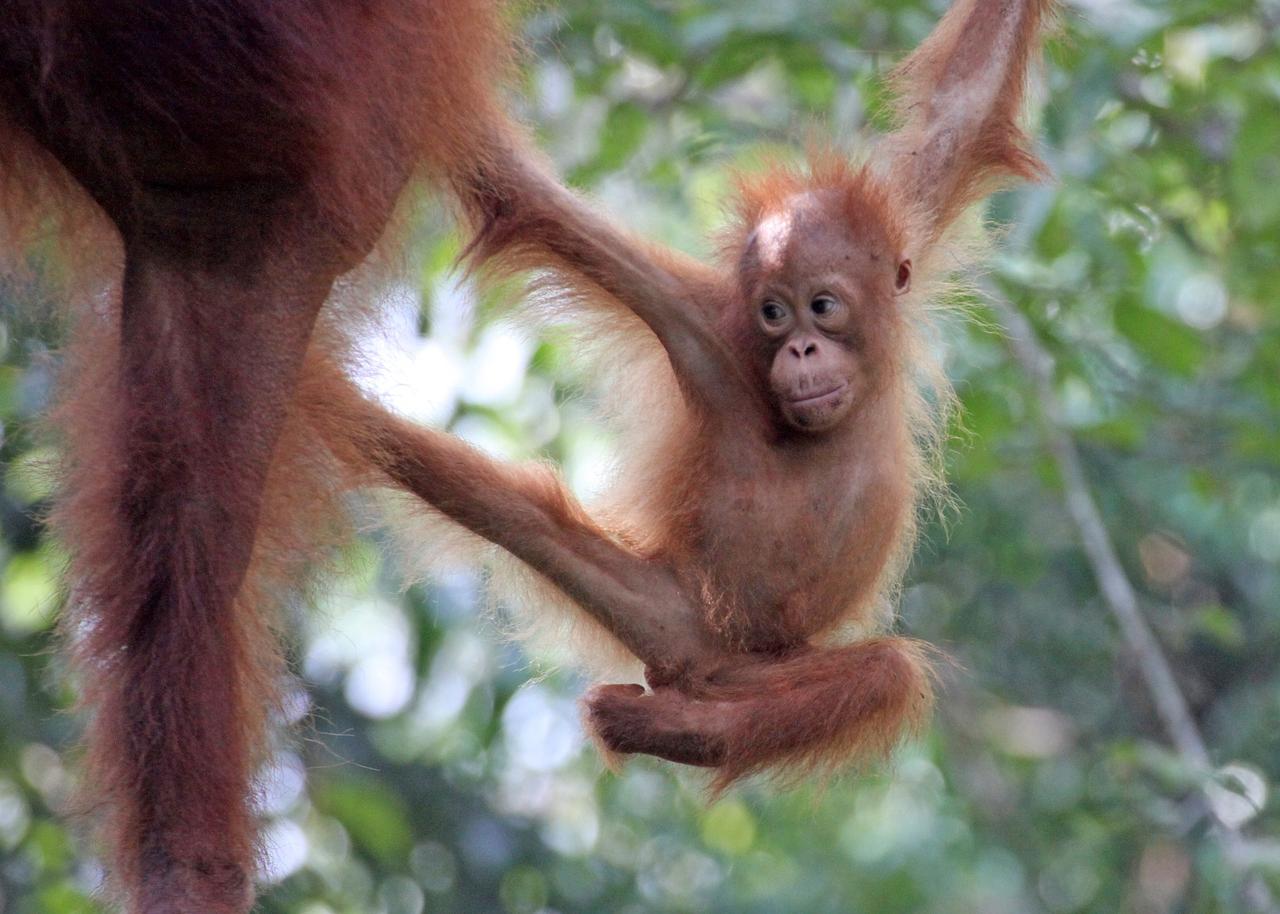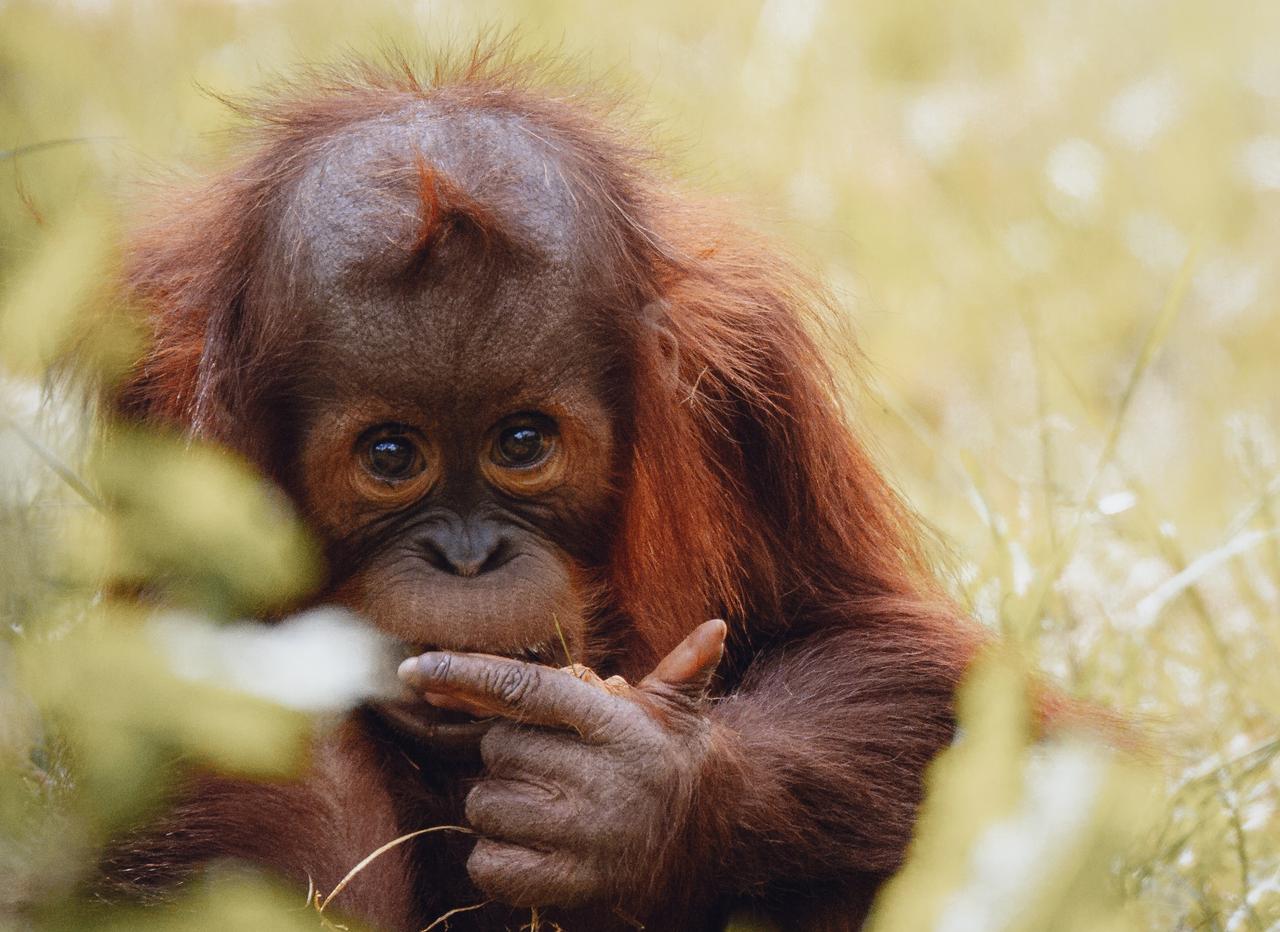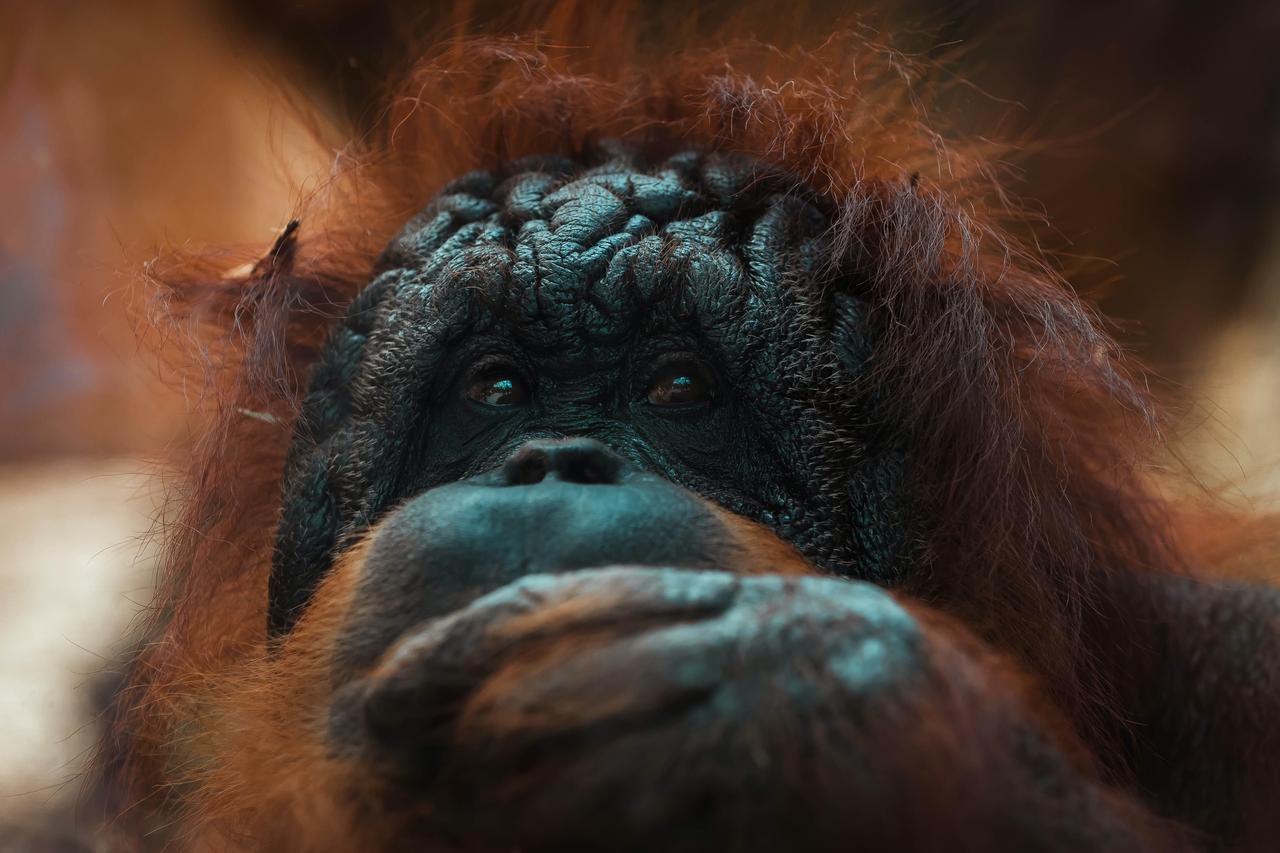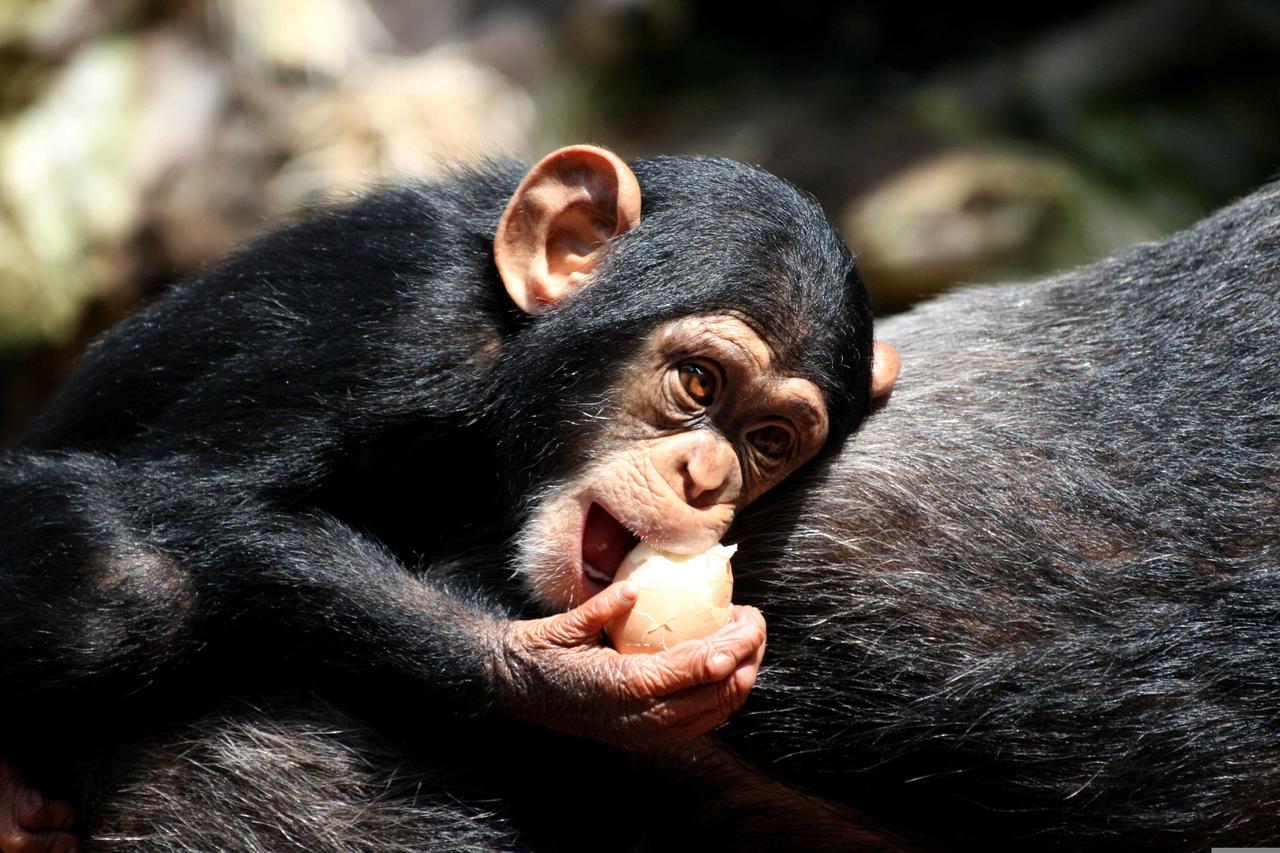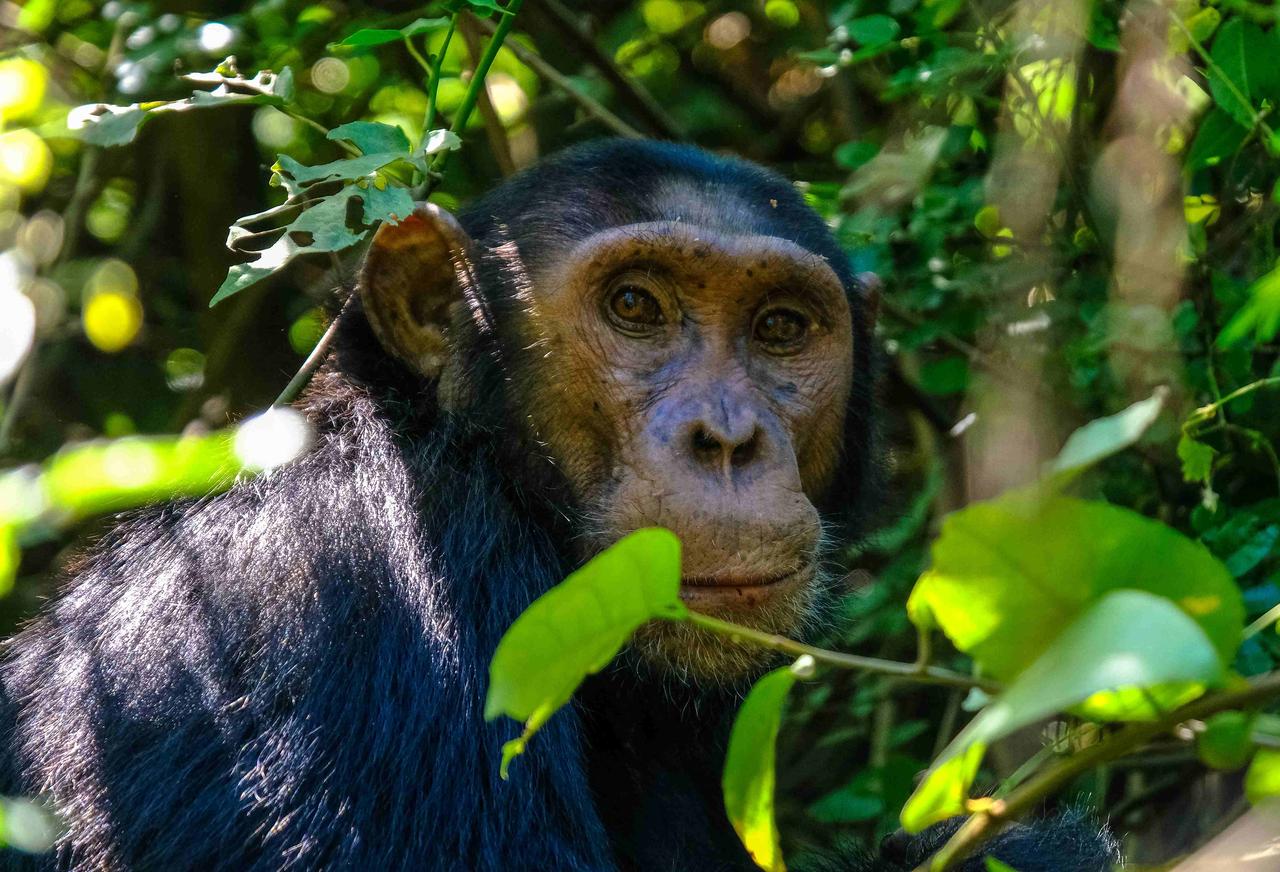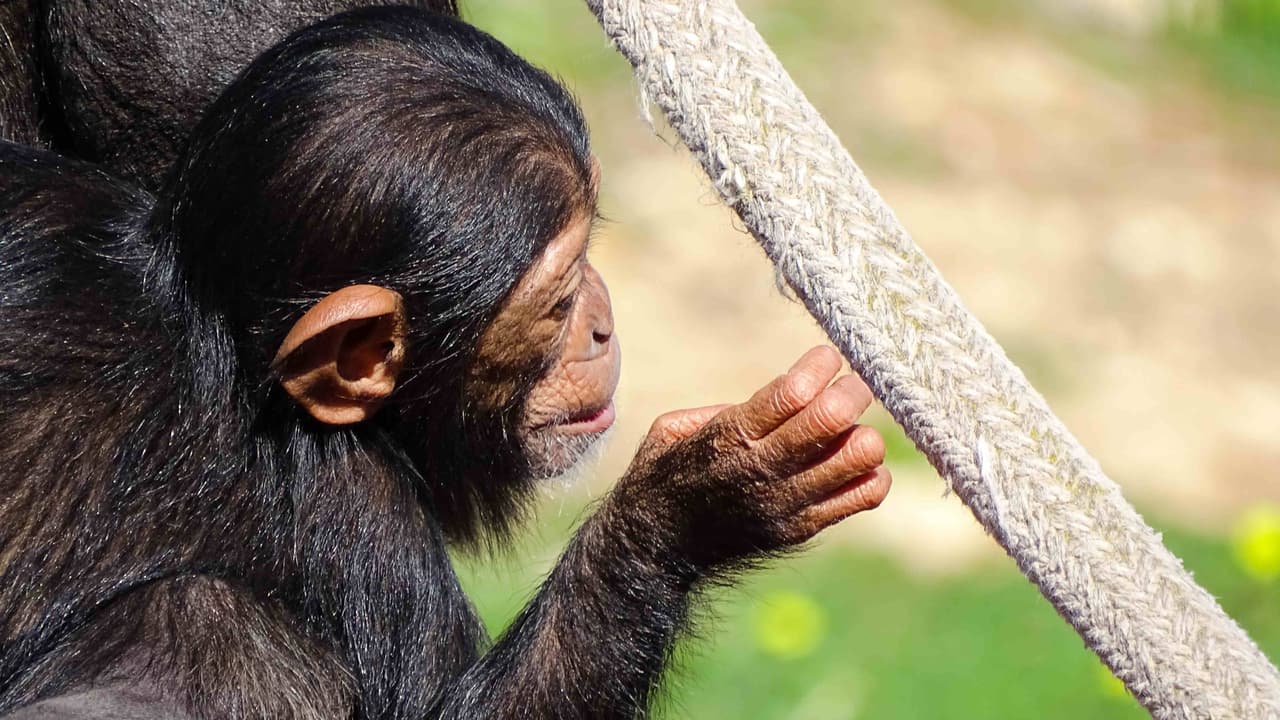
Famed primatologist, Frans de Waal, once questioned: “Are humans smart enough to know how smart animals really are?” On WORLD CHIMPANZEE DAY, find out for yourself as we explore the world of chimpanzee behavior and cognition.
On July 14, 1960, Dr. Jane Goodall stepped foot onto Gombe Stream National Park with only a notebook, binoculars and her own curiosity about wildlife. She knew little about chimpanzees at the time, and so did the rest of the world. Her unique approach to field research allowed her to see what no-one else had seen before: chimpanzees creating and using tools. And because of it, we came to realize human and chimpanzees are much more alike than we had known before.
Since then, further research and studies reveal insights into the mind, society and culture of chimpanzees.
Cognitively, chimpanzees are incredibly intelligent. Structurally, our brains are a lot alike. Studies indicate chimpanzees have a high level of cognition — the ability to perceive, recognize and reason through the accumulation and processing of knowledge. This gives chimps an ability to learn words and sign language, play (with each other and with objects), communicate under a complex communication system (consisting of body language, facial expressions, and vocalizations), problem solve, and work with tools, including fishing-probe style tools to retrieve termites. They have an ability to perceive themselves and others and are able to remember past events, and have advanced short and long-term memories. Some may even have better working memory than humans. There are even signs chimpanzees can use their past to prepare for their future.
More so, chimpanzees display signs of advanced emotional capacities. They are able to feel a wide range of emotion — including empathy, compassion, joy, anger and fear — and display it in similar ways to humans. They are also able to perceive how other chimpanzees feel; when stressed, chimpanzees will groom or hug each other for assurance. Because they have a sense of mortality, chimpanzees feel grief and despair, and will express it through touch.
Behaviorally, chimpanzees are just as complex. Chimps live in large fission-fusion societies, whose culture varies from one to the next; as displayed based on variations in tool use, nest building and grooming practices. These societies are led by a social order, with an alpha-male on top. They are also organized in similar ways to humans — prioritizing more intimate relationships — and work together to ensure the safety and survival of the group, often partaking in inter-group conflicts. But while chimpanzees can be highly territorial, they have been observed recognizing and interacting with other species — including gorillas — and adopting orphan chimpanzees in the wild.
Research forms one of the cornerstones in chimpanzee conservation and advocacy. With all four chimpanzee populations — Western chimps (found near the Ivory Coast), Central chimps (from Gabon), the Nigeria-Cameroon chimps, and the Eastern chimps (from Tanzania) — endangered, there is an even more urgent need to fund chimpanzee research and conservation programs. Without it, chimpanzees and other RAINFOREST species could vanish in the near future.




